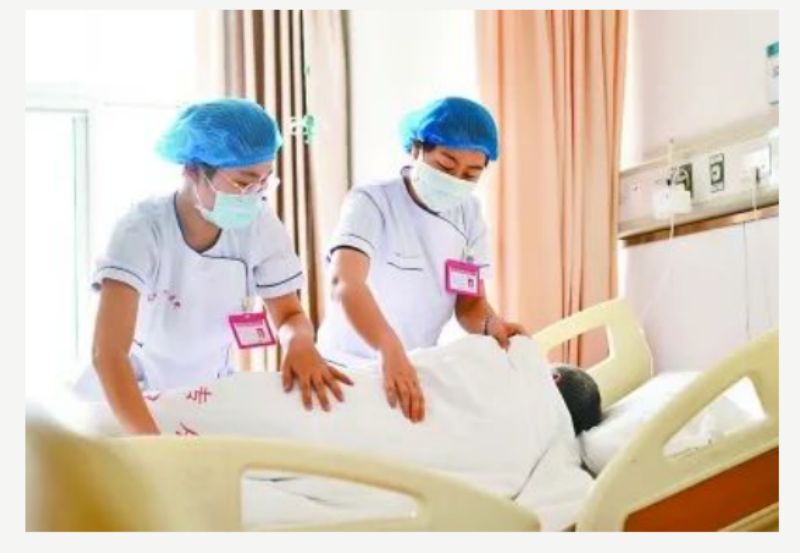One father was hospitalized due to a stroke, and his son worked during the day and took care of him at night. More than a year later, his son died of a cerebral hemorrhage. Such a case deeply touched Yao Huaifang, member of the CPPCC of Anhui Province and chief physician of the First Affiliated Hospital of Anhui University of Traditional Chinese Medicine.

In Yao Huaifang's view, it is too stressful for a person to work during the day and take care of patients at night for more than a year. If the hospital could arrange the care in a unified way, the tragedy might not have happened.
This incident made Yao Huaifang realize that after the patient is hospitalized, the difficulty of accompanying the patient has become another pain for the patient's family, especially those hospitalized patients who are seriously ill, disabled, postoperative, postpartum, and unable to take care of themselves due to illness.

According to her research and observation, more than 70% of all hospitalized patients require companionship. However, the current accompanying situation is not optimistic. Currently, the care of hospitalized patients is basically provided by family members or caregivers. Family members are very tired because they have to work during the day and taking care of them at night, it will seriously affect their physical and mental health. Some of the caregivers who are recommended by acquaintances or hired through an agency are not professional enough, they are highly mobile, older, common phenomena, low educational level and high employment fees.
Can hospital nurses undertake all patient care work?
Yao Huaifang explained that the hospital's current nursing resources are unable to meet the needs of patients because there is a shortage of nurses and they are unable to cope with medical care, let alone allowing nurses to assume the daily care responsibilities of patients.
According to the requirements of the national health authorities, the ratio of hospital beds to nurses should be no less than 1:0.4. That is, if a ward has 40 beds, there should be no less than 16 nurses. However, the number of nurses in many hospitals is now basically less than 1:0.4.

Since there are not enough nurses now, is it possible for robots to take over part of the work?
In fact, artificial intelligence can make a big difference in the field of nursing and medical care. For example, for patient urination and defecation care, the elderly only need to wear the intelligent incontinence cleaning robot like pants, and it could sense the excrement automatically, automatic suction, warm water flushing, and warm air drying. It is silent and odorless, and hospital nursing staff only need to change the diapers and water regularly.

Another example is remote care. The robot can continuously identify patients in the monitoring ward and collect abnormal signals in time. The robot can walk and accept some instructions, such as coming, going, up and down, and can also help patient contact the nurse, and patient can directly communicate with the nurse via video through this device. Nurses can also remotely confirm whether the patient is safe, thus reducing the nurse's workload.
Elderly care is rigid needs of every family and society. With the aging of the population, the increasing pressure on children’s lives and the shortage of nursing staff, robots will have unlimited possibilities to become the focus of retirement choices in the future.
Post time: Sep-28-2023





